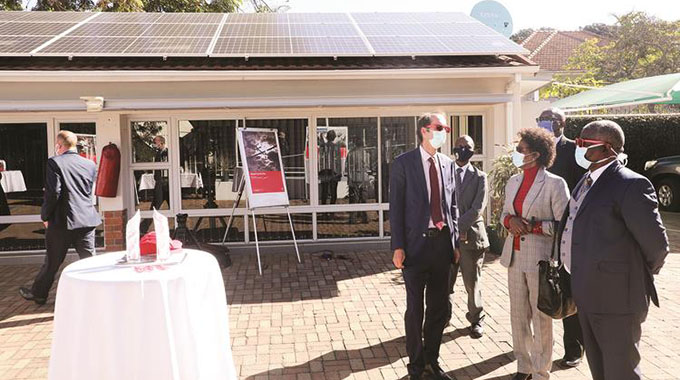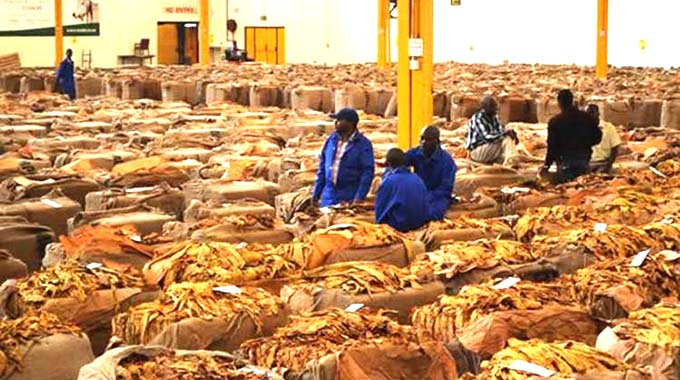Swiss embassy goes green

Herald Reporter
The Swiss embassy in Harare can now generate 160kW through its eight large solar panels, the largest solar facility at a Swiss embassy in the region.
Zimbabwe is a great place to invest in solar energy given its climate and conducive regulatory framework, Switzerland’s Ambassador to Zimbabwe, Zambia and Malawi, Mr Niculin Jager said during the joint commissioning with Energy and Power Development Minister Fortune Chasi.
The eight-panel set up, which started in 2010, can power the entire mission and its residences, leaving about 90 percent excess energy at peak.
The project dovetails with Switzerland’s goal of becoming a zero carbon emission country, and fight climate change.
Ambassador Jager said they were proud to have done one of the largest solar installations by a Swiss Embassy in the region.
“Solar power is a key part of our ‘sustainable embassies’ programme and further proof of Switzerland’s global commitment to environmental protection. I hope this project will inspire others.”
Minister Chasi said solar energy was the way to go if uninterrupted power supplies were to be guaranteed.
“Solar power is a practical solution for Zimbabwe, not only because the country has high levels of sunshine, but also because it is clean and could save the country money that is used to import electricity,” said Minister Chasi.
“Climate change means that we have to look at alternatives, and I am happy with this investment from Switzerland which is in line with Zimbabwe’s energy policy that promotes a transition to clean energy.”
Zimbabwe has put in place policies aimed at encouraging use of renewable energies.
Some of the policies are the Electricity Act of 2003 that resulted in the liberalisation of power generation.
The Act allows independent power producers (IPPs)in the renewable energy sector to generate and sell power to the national grid.
In 2019, Government approved renewable energy and biofuels policies, which seek to speed up the adoption of renewable energies by opening up the energy space to private players.
To date over, 10 IPPs are operating in the renewable energy sector. Five other small solar power plants expected to feed an additional 14MW into the national grid are under construction.
Private companies and individuals have installed rooftop systems at their properties as a result of the new policy regime.
Available electricity from renewable energy is about 135MW, which is fed into the national grid, representing about 6 percent to the total electricity mix in Zimbabwe, excluding large-scale hydropower from Kariba.










Comments